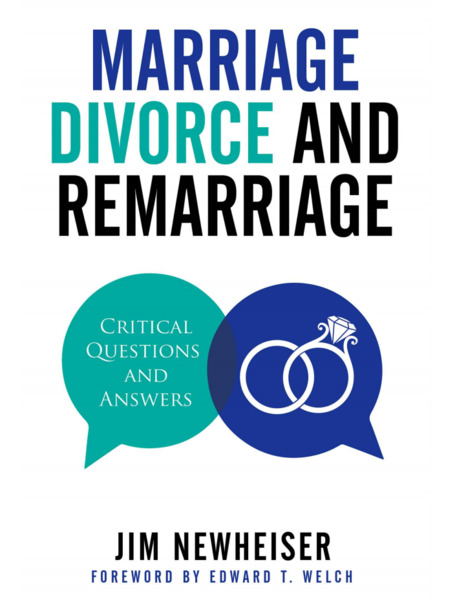
Jim Newheiser
Reviewed by: Danny Patterson
Marriage, Divorce, and Remarriage: Critical Questions and Answers, by Jim Newheiser. P&R, 2017. Paperback, 336 pages, $13.00. Reviewed by
OP pastor Danny Patterson.
What is marriage? How can you know whom you should marry? Does Scripture justify divorce on grounds other than abandonment? Is abuse grounds for divorce? Is cohabitation permissible apart from marriage? These are just a handful of the forty questions that are answered in this book. And not only are they answered, but they are answered well.
Newheiser tackles difficult questions with clarity and balance, rooted in the teachings of Scripture. He almost never falls into over-generalization, unlike many authors writing on this topic, and he never falls into over-simplification when addressing some of the more controversial questions regarding divorce and remarriage.
Among these questions is the permissibility of divorce and remarriage. In the Christian community, there are essentially two positions here. The majority view is that the Bible allows for divorce and remarriage under certain circumstances, while the minority view (or permanence view) holds that a Christian may never initiate divorce and may never remarry as long as his or her spouse is still alive. Newheiser defends the majority view and thoroughly, yet humbly, dismantles the permanence view, supporting such a stance through careful exegesis of the most significant biblical texts.
Newheiser reminds his readers of the importance of the local church in the making and dissolving of marriages. This emphasis echoes the teaching of our Confession, which reminds us that those contemplating divorce should not be “left to their own wills, and discretion” (WCF 24.6).
Furthermore, Newheiser is quick to remind us that the church has the responsibility to protect the vulnerable and discipline offenders for the glory of Christ. “Church leaders,” Newheiser contends, “who send a woman back into a situation in which she is likely to be beaten have failed to fulfill their call to protect Christ’s sheep (Acts 20:28) and are unworthy of their office (Ezek. 34:1–10).” To this we say, “Amen.” God is concerned with the oppressed, and officers of the church are responsible to protect those who are afflicted by abuse.
Because of the format of this book, readers may use it in a few different ways. First, it can be read straight through, in order to get an overview of the biblical teaching on marriage, divorce, and remarriage. Second, for those who are seeking to tackle a specific issue, the question and answer format of the book allows it to be used as a reference book of sorts. However, the reader should be aware that the sheer number of questions that are tackled allows only general answers to these questions. For example, if you are looking for an exhaustive treatment of the issue of abuse as it relates to divorce and remarriage, you will not find it here. This should not be seen as a criticism of the book, but simply a limitation.
Third, this book is a gem for the purposes of premarital and marital counseling. Counselors will find the question-and-answer format helpful because it will enable them to assign certain chapters to couples who are working through specific obstacles in their marriage or who are preparing for marriage.
April 27, 2025
The Devoted Mind: Seeking God’s Face in a World of Distraction
April 20, 2025
April 13, 2025
Suffering: God’s Purpose in Our Pain
April 06, 2025
Sunday Matters: 52 Devotionals to Prepare Your Heart for Church
March 30, 2025
On the Trail with a Missionary
March 23, 2025
Midnight Mercies: Walking with God Through Depression in Motherhood
March 16, 2025
© 2025 The Orthodox Presbyterian Church